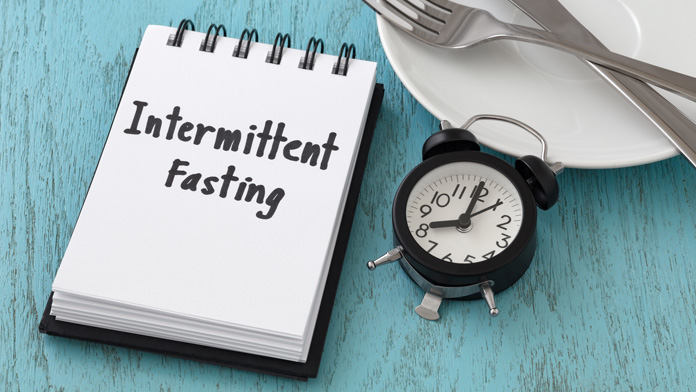There is a real one difference between the intermittent diet and other diets slimming? For years now, many Italians have relied on this diet to lose weight and increase their well-being. L’intermittent fasting, as the Americans call it, has daily time restrictions. There are several types.
In this article
The various types of intermittent diets
The most famous formula is perhaps the 16:8, which involves fasting for 16 hours and inserting all meals into the other 8 hours. More complicated to follow 20:4. The scheme provides that you can only eat during 4 hours to abstain from food for the next 20 hours. Then there’s the 24-hour fast, which is downright challenging. Find out what happens to your body when you don’t eat for 24 consecutive hours.
Difference between the intermittent diet and other diets: what the new American study says
A new study from the University of Illinois in the United States has confirmed that intermittent fasting gives the same results as any low-calorie diet. Both regimens guarantee an average yearly loss of 5% of body weight. You can read the results in the scientific journal Annals of Internal medicine.
Researchers at the Chicago Research Center analyzed data from three groups of people for one year. The first group followed intermittent fasting. The second group followed a diet that included a 25 percent reduction in calories. The third group continued to eat as usual.
The first two groups lost practically the same weight, about 5-6 kilos on average. According to the researchers, however, intermittent fasting is easier to follow, so it can represent an important alternative.
Difference between the intermittent diet and other diets: the Chinese study
Already another study carried out in China reached the same conclusions. You can read the results of this research in the prestigious scientific journal New England Journal of Medicine. Researchers at Guangzhou University followed 139 obese people for twelve months. Their goal was to understand if the intermittent fasting diet was better than the others in terms of weight loss. Men were required to eat a diet of 1,500-1,800 calories a day, women ate between 1,200 and 1,500. Everyone photographed every dish they ate and kept a food diary. their meals were supervised by a food coach. They were divided into two groups: the first followed the hourly restriction diet, the second only had to stick to the expected number of calories.
The results of the study
After twelve months both the first and second groups had lost weight. Those who followed intermittent fasting lost an average of 8 kilos, those who followed only 6.3 calories. From a statistical point of view, just over a kilo and a half is not a significant difference. Similar improvement in waistline, loss of body fat and increase in lean body mass. The same situation also for cholesterol, blood pressure, blood sugar and insulin resistance.
Difference between the intermittent diet and other diets: qWhat are the limitations of the study?
Experts acknowledge the validity of the study. However, the number of participants is small. The difference in weight loss between the two proposed models could become significant
We remind you that in a general sense, before tackling the intermittent diet that involves fasting for several hours, you must always be followed by a professional. There are some Apps that promise a high level of service. But how do we know exactly how much food we are eating?
Always consult a specialist
In order to lose weight by eating only once a day, you must therefore pay close attention. There are smartphone apps that promise to keep track of all the calories we eat, but they are often inaccurate. Do we know exactly how much food we are eating? If we take a sandwich at the bar, how do we know how many grams of ham we are taking? Even more so if you choose to use this method to lose weight, contacting an expert is very important.
